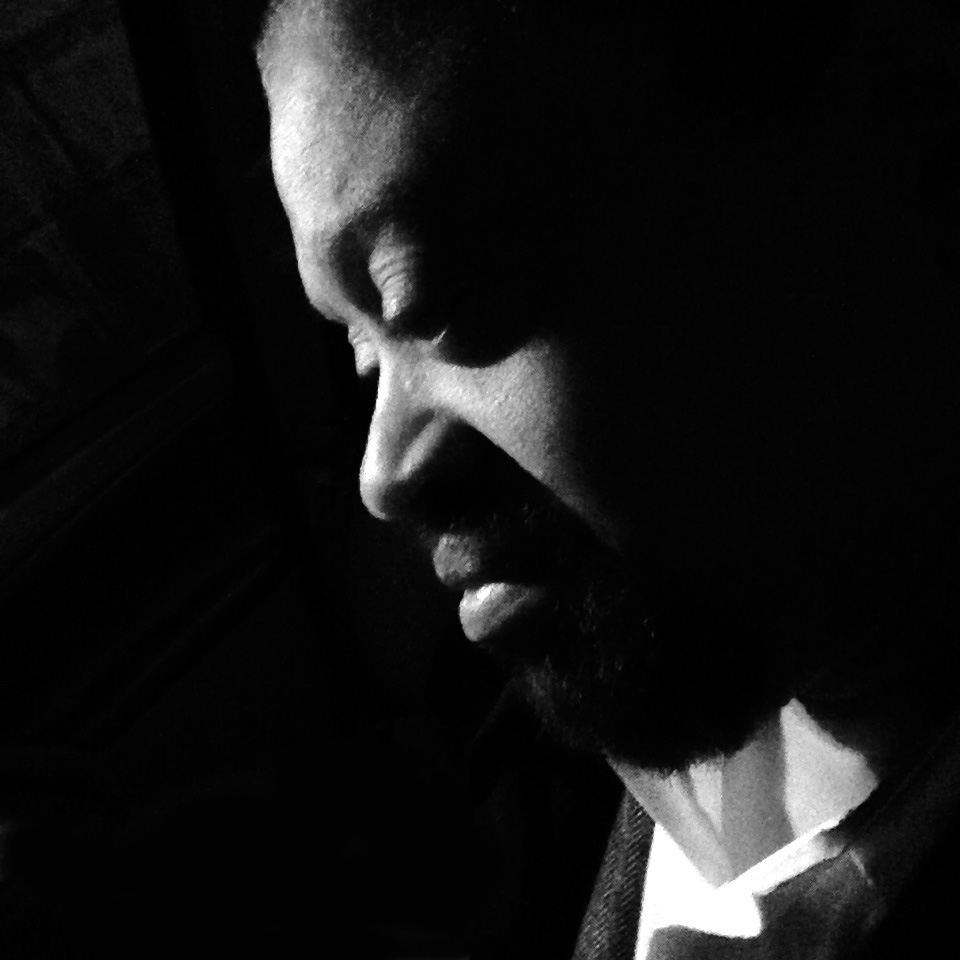 John W. Penny was born in Alton Illinois, the city where the great and influential trumpet player Miles Davis was born. Also in common with Miles Davis, he is a Gemini with an insatiable urge for self-reinvention. John grew up the son of an African Methodist Episcopal minister in a family of eight where there was no shortage of music. Though his initial desire was to play violin, his parents may have had Louis Armstrong and Miles Davis in mind when they bought him a cornet at age 9. In a musically rich family environment where there was already a classical pianist and vocalist, gospel singers, and a Blues and R&B guitarist, John became comfortable with everything his parents and older siblings spun on the home record player. By age 16, John was playing his first guitar. He earned a degree in music performance as a brass player from the University of Iowa. While still an undergrad, he was granted permission to co-instruct the first credited Jazz history course offered at the U. of I.
John W. Penny was born in Alton Illinois, the city where the great and influential trumpet player Miles Davis was born. Also in common with Miles Davis, he is a Gemini with an insatiable urge for self-reinvention. John grew up the son of an African Methodist Episcopal minister in a family of eight where there was no shortage of music. Though his initial desire was to play violin, his parents may have had Louis Armstrong and Miles Davis in mind when they bought him a cornet at age 9. In a musically rich family environment where there was already a classical pianist and vocalist, gospel singers, and a Blues and R&B guitarist, John became comfortable with everything his parents and older siblings spun on the home record player. By age 16, John was playing his first guitar. He earned a degree in music performance as a brass player from the University of Iowa. While still an undergrad, he was granted permission to co-instruct the first credited Jazz history course offered at the U. of I.
 As a performer, John Penny has taken the stage and studio with great Jazz musicians that include Hammand organ legend Captain Jack MacDuff, Harmonicist Howard Levy, drummer Bernard Purdie, and drummer Erik Gravatt as a member of Gravatt’s group Kaminari. He has produced records for other Jazz musicians that included some of his compositions and guitar playing. John Penny’s music has also been heard across America in TV commercials for such advertisers as Best Buy, Frito-lay, Target, and NBC News. His music for long films included scores for the movie Patti Rocks, film scores for The Minnesota Twins, The United Way, Honeywell, and many others. While producing music for TV marketed as “non-commercial music for commercials”, his sound design work was also being heard in feature films, political campaigns, the Super Bowl, and sound that accompanied comedian Louie Anderson’s live show. His music scoring work did not keep him from composing an evolving collection of Jazz songs that were being shelved as he composed them.
As a performer, John Penny has taken the stage and studio with great Jazz musicians that include Hammand organ legend Captain Jack MacDuff, Harmonicist Howard Levy, drummer Bernard Purdie, and drummer Erik Gravatt as a member of Gravatt’s group Kaminari. He has produced records for other Jazz musicians that included some of his compositions and guitar playing. John Penny’s music has also been heard across America in TV commercials for such advertisers as Best Buy, Frito-lay, Target, and NBC News. His music for long films included scores for the movie Patti Rocks, film scores for The Minnesota Twins, The United Way, Honeywell, and many others. While producing music for TV marketed as “non-commercial music for commercials”, his sound design work was also being heard in feature films, political campaigns, the Super Bowl, and sound that accompanied comedian Louie Anderson’s live show. His music scoring work did not keep him from composing an evolving collection of Jazz songs that were being shelved as he composed them.
Even with a professional life that held more than composing and performing Jazz, most every one of John Penny’s days included efforts to uncover new pathways to human expression through development as a guitarist and composer. From all other pursuits, he has moved to a focus on producing and releasing the wealthy collection of compositions that were shelved across a diverse professional life. This music will however share the stage with his most recent compositions. With conversational melodies, orchestral swatches, and dancing rhythms, the Urban Tumble release is the first one of the legacy series that offers an indication of what is to come . This next chapter of the composers musical output will heat up as the flood gates of held music are opened to meet the new music.
